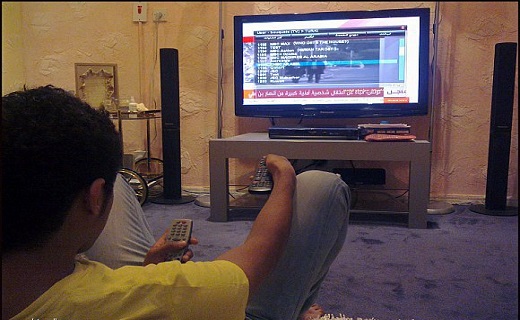Yaounde – A climate of political and social unrest has been raging and reigning in Cameroon over a year now. The leaders of the civil society from the Anglophone regions of Cameroon which represent 25% of the country’s population have been on strike. This state of insecurity came about due to a strike action called by teachers and lawyers from the two Anglophone regions; the South West and North West regions later extracted and commandeered by other discontented powers (secessionist). The government’s response to their clamors has been to suppress any effort aimed at mobilizing and organizing any form of protest and reclamations for instance; shutting down the internet, and all forms communications. These strikes have led to civil unrest as a result of unfulfilled demands by the Cameroonian government to the Anglophone civil society leaders. The tangling between Anglophone lawyers, teachers, and the Cameroonian government have plunged the whole country into a socio-political crisis. On the eve of the next election this crisis has become cumbersome to President Paul Biya’s regime, and who is alleged to be seeking reelection in 2018, at the age 84 following 35 years of reign. Though, the strike action is not formally called off but there are unending steps towards solving the current issues but not the entirety of issues raised by diverse Cameroonian segments and the Anglophone people in particular. Cameroonians of all walks of life, including members of the civil society are bent on coming up with potential solutions to the Anglophone crisis which could prevent a political, economic and social disintegration of Cameroon. At this juncture, it is important to fully understand the causes of this unrest which have deep colonial roots dating from the country’s independence from German, British and French colonial empires from 1916 to 1960.
Background to the conflict
Cameroon is an African country situated on the eastward end of the West African shoreline known as the ‘‘hinge of Africa’’, well identified in the 19th century, from 1827, as part of the unceremonious British Empire, even though ironically, it was appropriated by the Germans in 1884. The German takeover was unanticipated, not only as the Germans had never before revealed any importance in overseas purchases, but similarly because of the abundant publicized pleas by the local chiefs, the British Consular representatives, missionaries and merchants that Britain ought to lawfully take over the region.
The German colony lived only 30 years until the outburst of World War I in 1914, but throughout those short years, the Germans discussed and set up the country’s international borders, set up the foundations of modern administration, and gave preeminence to the notion of belonging together or being a Cameroonian in the midst of peoples of the several ethnic groups and traditional states of the region. An effort by the Germans in 1911 to expand their original territory of Cameroon by squeezing out any form of French influence took place, but large lots of their Equatorial African assets was short-lived as the French re-annexed them to their original belongings in 1916.
The allied triumph in Cameroon and the eviction of the Germans in 1916 was followed on by the partition of the territory unduly between Britain and France on a one to four base in favor of the latter. Any expectations the British had entertained throughout the occupation of appropriating, rather integrating, their lot of Cameroon into the adjacent colony of Nigeria was crushed by the provisions of the treaty of Versailles which made previous enemy areas mandates of the League of Nations. The period of the British and French mandate in the two Cameroons carried on from 1922 until 1945 when the League of Nations (and its Permanent Mandate Commission which oversaw the administration of the mandated areas) was supplanted by the United Nations and its Trusteeship system. The two regions came to be trust regions under the very administrative authorities.
By the terms of both the League of Nations and the United Nations, Britain and France had full controls to create their slices of Cameroon into a customs, fiscal, currency and administrative union or confederation with neighboring territories, short of takeover, as already stated. It is for this cause that Francophone Cameroon went to the Federation of French Equatorial Africa, but as a distinct administrative entity. The miniature and geographically fragmented Anglophone Cameroon was preserved by the British for administrative purposes as a central part of British Nigeria. The northern belt of the Anglophone area was partitioned and merged with the governments of three separate provinces of Northern Nigeria, while the southern part became one of the governmental provinces of Southern, later, Eastern Nigeria.
In 1961 the political elites of French Cameroun and British southern Cameroon convened to form a federal state. The former British Southern Cameroon chose in a UN organized referendum in 1961 to reunify with La Republique du Cameroun to form a federation of two states that were said to be on a footing of equality. Contrary to what British and French elites had expected, this plan actually turned out to be a failure as it did not provide equal partnership to both parties. Let alone the preservation of the cultural heritage and identity of both entities but turned out to be merely a transitory phase to the total integration of the Anglophone region into a strongly centralized, unitary state.
On May 20th 1972 the federal union was disintegrated through a plebiscite, thereby forming a unitary state. This plebiscite involved the whole Federal Republic and not those who decided at the beginning to form a union with the existing independent La Republique du Cameroun and the republic became known as the United Republic of Cameroon. This also became more blatant with the change in the republic’s flag from two stars to the present-day one star.
In 1984 President Biya rehabilitated the name of the country from United Republic of Cameroon to the Republic of Cameroon and more pointedly, this was the pre-federation name of La Republique du Cameroun. Through a number of assimilation stages, the Southern Cameroons had lost its autonomy to La République du Cameroun, its people marginalized, institutions destroyed, and the territory neglected in terms of socio-economic development. Their numerous grievances were mostly political economic and cultural: most notably their under-representation in the decision making of government affairs. The rape and drain of its natural resources, mainly oil by successive francophone governments and attempts to Frenchify Anglophone Cameroon. This gradually created an Anglophone awareness, and a feeling of social, cultural, oppression, domination and marginalization by the francophone state and its entire population. This has given rise to agitations by Southern Cameroonians (Anglophones) seeking for a restoration of the state of affairs by re-establishing the federal system or, failing which, the autonomy of the Southern Cameroons in a separate state.
It was not until the advent of the multiparty politics in the 1990s that some of the Anglophone elites protested their subordination and demanded a form of autonomy and self-determination that preserved their cultural heritage and identity. The rise of Anglophone media, pressure groups, and political parties like the Social Democratic Front under John Fru Ndi helped in representing and expressing Anglophone interests. Paul Biya’s continuous refusal to discuss any form of constitutional reform or even accept the least of their demands radicalized their stance. Some organizations turned nationalistic and started clamoring for secession from the union.
Reactions of the Francophone–Dominated Regime
Numerous attempts have been made to ignore the Anglophone problem or at least minimized it. President Paul Biya has on numerous occasions expressed that the 1972 referendum vote was the outcome of the choices of Cameroonian people and in no way could it be put into question. In response to the demands of the Anglophone civil society leaders and other pressure groups to return to the federal state, President Paul Biya has argued on the cost of a federal system, weak in terms of government efficiency and divisive because it provokes regional and tribal sentiments rather than national consciousness and unity. President Biya has also tried to equate federalism with secession. While refusing to acknowledge the idea of a federal state he has acknowledged the idea of autonomy in the current unitary state by the means of ten provinces in Cameroon.
Present Conflict
After more than 10 months of lettering petitions requesting for legal modifications that were eroding the Common Law System effective in English speaking Cameroon regions, the government did not respond or make any moves to show they acknowledged such grievances. In October 2016 the lawyers of Anglophone provinces carried out a peaceful strike action to bring focus on their demands. In both cases the government responded by beating and teargassing the lawyers by use of the local police. Many sustained injuries but the strike continued peacefully. All Common Law lawyers have downed their wigs and are not attending court sessions. Their key complaints include:
- Replacement of French speaking justices and state counsels, who in the most part cannot express themselves in English and conduct cross examination in French.
- Translate the central text of commercial law (OHADA) into English. This is the principal reference for commercial law in CEMAC (Economic Community of Central African States).
Meanwhile, English speaking teachers under three different unions and parent associations declared a sit-in strike from the 21st November for 4 days; renewable if their demands were not met. These demands among others focused on dilution of the English Education System in Cameroon. The teachers complain that everything inherited from the English Educational systems is gradually been eliminated from the national education policy and political process. Among the complaints, the highlights are:
- The ascendency of Francophone students in English Universities who have no mastery of English but Students of English breed cannot have admission.
- Teachers from Francophone Cameroon are sent to teach in English speaking regions when they have no good understanding of English and students are taught in neither English nor French.
- Anglophone students in technical schools are obliged to write examinations poorly translated from French.
Synoptically put, these are some of the stages and history that led to the physical confrontation between the police, and military on the one hand and disgruntled youths on the other. The main area of physical opposition was in Bamenda, in the North West regions of Cameroon. On 21st November 2016, a group of young people paraded to the main commercial boulevard and started demanding solutions to many concerned issues. Their grievances focused on the pitiable state of roads, privation of potable water in many parts of the city and province; poor waste disposal, lack of employments and ever rising joblessness. It increasingly snowballed into a call for better governance, federalism and separation of the two states and the instantaneous return of all that is Francophone (institutions and people) back to their own state.
The combined actions and reactions have led to the destruction of property, loss of economic opportunities especially for poor struggling market traders. Many people have been injured, maimed and some lost their lives. The problem has continued in Buea with University of Buea students who staged a peaceful protest on Monday, 28th November 2016. The peaceful protest was interrupted by the police and other armed military officers who brutalize and beat up students. The stories and images are gory. There were reports of breaking into student residential hostel and taking them for torture in the Limbe Oil Refinery military base.
Conclusion.
In attempt to defuse the conflict the government enacted a series of proposals aimed at improving the justice system, by modifying the organization and functioning of the Supreme Court to include the common law section. The minister of justice ordered a new evaluation test of the mastery of common law by magistrates serving in the North and South West court of appeals. On this basis president Paul Biya will proceed to the reorganization of magistrates taking into consideration the mastery of the official language most used in the region without putting into question either the irrevocable option of national integration or career development of magistrates. On 26th to 27th of November 2016, the Prime Minister Yang Philemon was in Bamenda, in the North West regions of Cameroon to hold consultations with concerned stakeholders. He held distinct meetings with traditional rulers, politicians, teachers and lawyers. Disappointingly, the negotiations had not produced any concrete outcome. The teachers said the act by the government to make available emergency subsidies to private and denominational schools did not answer the fundamental questions of their strike action. This needs to be said, the present predicament in Cameroon is motivated by what many Anglophones see as methodical discrimination that could lead to the total and complete absorption of them by the Francophone majority. This however, is not the only matter that is giving distress to the nonexistence of armed conflicts in Cameroon. There is a silent frustration about the lack of accountability and poor governance in the country and many within are afraid to raise their voices for fear of retaliations. Cameroon is in a fragile state, many issues are not openly discussed as there are no such platforms, the lack of which could lead to political and social cataclysms. The many dissenting forces are not synchronized; this can easily play into the hands of any powerful force, even from outside the country. Any long and sustained social and political chaos in Cameroon could lead to a complete breakdown of the brittle peace and security in the Central African sub region. This is a defining moment for Cameroonians to shape an environment that is politically, socially, culturally tolerant and sane on the eve of the 2018 general elections. There is need to build channels of communication platforms within the different participant groups in this crisis and between the different participant groups and the government for the betterment of the country and for future generations.







